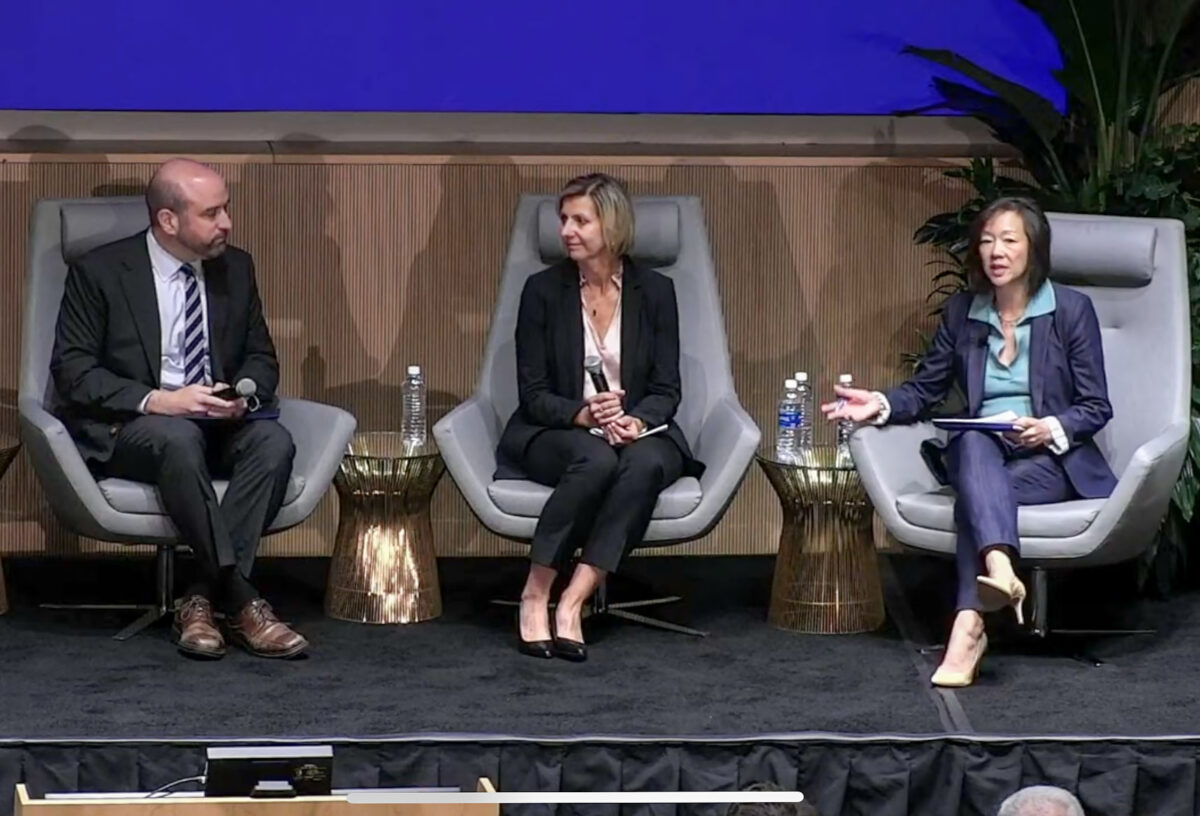As the Pittsburgh region readies for a huge influx of federal funding to support industrial innovation, local communities must have a say in how it’s spent.
That was the thrust of a recent convening hosted by the Brookings Institution at Carnegie Mellon University. Leaders from government, academia and business gathered to discuss how larger public policies affect on-the-ground city and neighborhood revitalization.
Federal and state funding will drive the Pittsburgh economy, the panelists said, thanks to the billions of dollars collectively allocated by the CHIPS and Science Act, the Inflation Reduction Act, the Build Back Better Challenge and other US government programs.
“Make no mistake,” CMU President Farnam Jahanian said, “place-based economic growth has a key role to play in advancing our national security and economic competitiveness.”
Federal funds go a long way to spur innovation
Three major federal bills recently passed – the Infrastructure and Investment and Jobs Act, the CHIPs and Science Act, and the Inflation Reduction Act — that have provided trillions of dollars for the advanced industry sector. These acts support place-based strategies, and Pittsburgh is taking advantage of the programs offered to enhance the robotics industry in the city, said Alan Berube, interim vice president and director of Brookings Metro.
The government’s role in funding these programs is absolutely essential, absolutely criticalPetra Mitchell Catalyst Connection
The $280 billion CHIPS and Science Act funnels money to local tech development. A big part of that goes toward manufacturing semiconductor chips, but universities, startups and nonprofits all qualify, too.
Organizations in Allegheny County have already started receiving those federal funds. The National Science Foundation, for example, granted the University of Pittsburgh two awards for its semiconductor research. The White House also selected Pittsburgh to represent it as a “workplace hub” to churn out more qualified manufacturing workers.
Other programs, like Manufacturing Extension Partnerships, provide federal funding that supports manufacturing companies in places like Pittsburgh. This helps local startups get help on the “front end” of things like technology adoption, according to Petra Mitchell, president and CEO of manufacturing consulting firm Catalyst Connection.
“The federal government’s role in funding these programs is absolutely essential, absolutely critical,” Mitchell said during the event. “There’s no way that our regional manufacturers could afford the kind of services that we’re able to provide, the kinds of research that we do, the kinds of specialized expertise that we can bring to the table [without the funding].”
Pennsylvania’s plans for helping Pittsburgh revitalize
Development begins with community and coming together, Pennsylvania Secretary of the Department of Community and Economic Development Rick Siger said at the event. In this case, it means both the city and state strategizing together to come up with a plan for participating in the highly competitive global economy, especially given Pittsburgh’s past of industrial decline.
“We wanted to build a plan that was relevant to all regions of the state, relevant to all people that live here, which is hard, in adversity, but also put a stake in the ground,” Siger said on the panel.
For example, Siger says that an idea similar to the Build Back Better plan was proposed. The Southwest Pennsylvania New Economy Collaborative is an 11 county effort that takes a “hub-and-spoke” approach to building out robotics and autonomy in the region.
This plan, which Siger describes as a regional competitiveness challenge, aims to incentivize regions to come up with ideas that they think would benefit their area’s businesses and local economy. Siger cited workforce challenges and infrastructure challenges as possible challenges to overcome with an idea.
While the plan is statewide, the ideas do not have to be something that would be beneficial to the entirety of Pennsylvania, Siger said. It specifically focused on local issues. The plan idea goes in hand with Governor Josh Shapiro’s proposed $500 million for a statewide development.
“The Southwest Pennsylvania New Economy Collaborative is the region’s effort to broaden its already strong world class robotics and economy cluster,” said senior fellow at Brookings Metro Mark Muro, “and make sure that it reaches every into every corner of the 11 county region, including rural, coal-impacted, and otherwise underrepresented workers.”

This story is a part of Technical.ly’s Thriving Tech Communities Month. See the full 2024 editorial calendar.
Join our growing Slack community
Join 5,000 tech professionals and entrepreneurs in our community Slack today!
Donate to the Journalism Fund
Your support powers our independent journalism. Unlike most business-media outlets, we don’t have a paywall. Instead, we count on your personal and organizational contributions.

Regional unions are shaping up to be a deciding force in Pittsburgh's mayoral race — and more

National AI safety group and CHIPS for America at risk with latest Trump administration firings

How AI is infiltrating labor union contracts, in Pittsburgh and beyond



